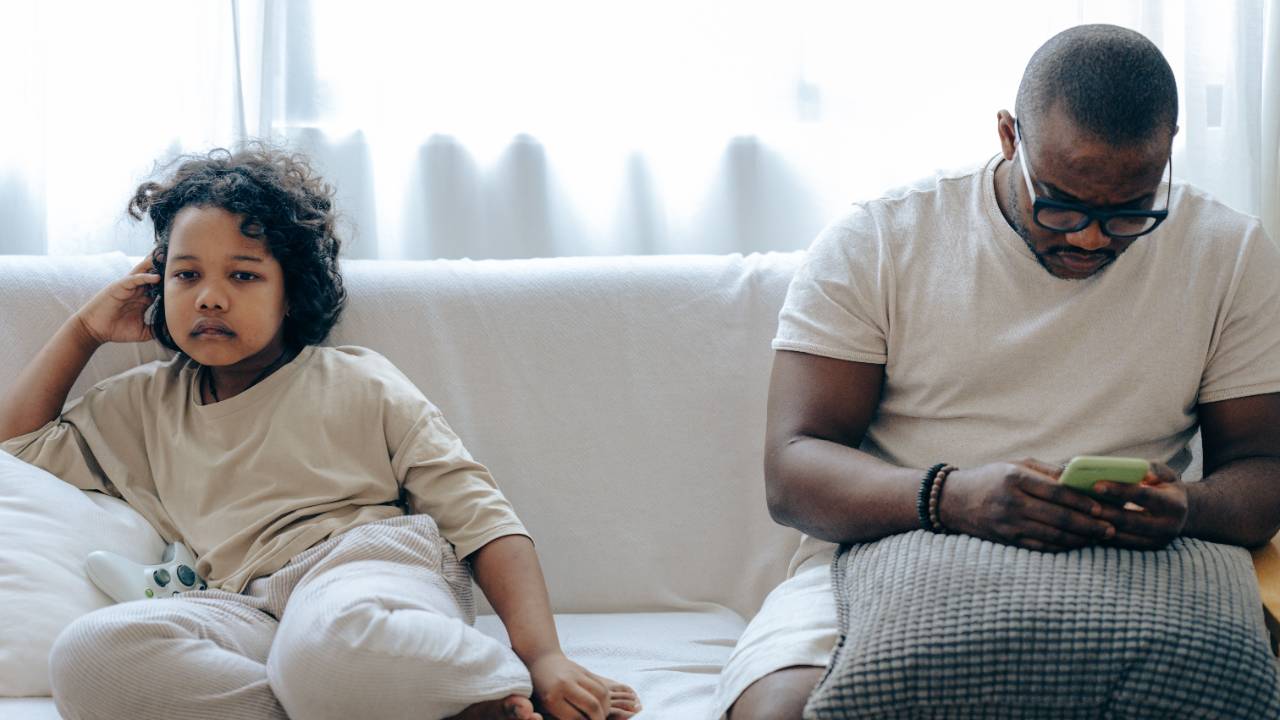Postpartum Depression in Partners
Aug 09, 2023
Did you know that men experience hormonal shifts during their partner’s pregnancy and into the postpartum period? While this biological change likely occurs to stimulate child / parent bonding, it also causes postpartum depression in about 8%-10% of partners - and is all too rarely talked about.
But Drs. Sarah and Alicia are here to spark the conversation! Tune in to today’s episode, and read on as we breakdown which factors increase the risk of partner postpartum depression, why, and what can be done about it, and make sure to download the Mental Health Resource we created just for you!
Am I at risk for postpartum depression as a partner?
There are certainly some factors that increase the risk of being affected by partner postpartum depression, such as:
- A personal history of depression
- Marital discord or challenges within the marriage
- Poverty
- Maternal depression
- Unintended pregnancy
- Sleep deprivation
Naturally, the postpartum period brings challenges in both partners when it comes to interrupted sleep, which can affect circadian rhythms, and mental health. Check out our affordable Newborn Sleep 101 Course to help them sleep better so you can sleep better!
How can I suffer from postpartum depression? I wasn’t pregnant!
Men's hormone levels actually shift during their partner’s pregnancy and the first few months postpartum! This is thought to help improve the parent-child bond, as occurring similarly in female partners. One such shift is a decrease in cortisol, which has many important functions related to metabolism, and regulating stress. If decreased, it can create a sense of increased stress within the body. A decrease in testosterone and increase in estrogen levels, though both thought to occur to improve bonding with baby, can contribute to a lower mood in men, and in turn symptoms such as irritability, indecisiveness or challenges in making decisions, or a decreased range of emotion.
I’ll just suck it up, right!? I need to support my partner!
Studies have also shown that children who live with a father with mental illness have a 33%-70% higher chance of developing emotional or behavioral issues, and it has been associated with delays in behavioral, social and emotional development in four to five-year-old children as well. It is often really challenging for partners to come forward and talk about their mental health concerns, whether due to the societal stigma, or feeling like it is undeserving of attention. But as the numbers show, it can have a huge impact on everyone within the family.
What can be done?
Talk to your partner, let them know how you're feeling. Don't put any of the blame on them or the expectations for them to change or “fix” it, but if they know you're suffering they can make a more conscious effort to support you in your healing journey. If you have the resources, reaching out to a mental health professional or care provider can be helpful - there are many resources that can be accessed in different communities, including counseling, cognitive, behavioral therapy, or even online the support of an online community.
One of our favourite self-care tips that provides simple self-care steps with a large impact is encompassed in the acronym N.E.S.T.S.
N : Nutrition. Making sure you're eating healthy, regular meals and snacks, because this is what sustains us and gives us energy.
E : Exercise. Movement helps everyone and stimulates physical and mental health, even in small doses!
S : Sleep. Create a sleep plan with your partner, so you can both find times to support each other’s rest.
T : Time for Yourself. Talk to your partner about what each of you needs in a week to feel like yourself, aim for 3-5 hours a week of "me time" and schedule it in!
S : Support. Allow yourself to be vulnerable and reach out for help.
Above all, keep in mind that postpartum depression in partners is common and you are not alone. Generally peaking around three to six months postpartum, it's also helpful to recognize both as the birthing person and the partner that there's probably more stigma around partner mental health, whether it is due to a lack of awareness, guilt or stigma. So let’s start talking about it, and let’s start healing!
Check out our episode on Preparing your Relationship for a Newborn for another great free resource.
Don't miss a word!
New topics, stories, and information delivered to your inbox weekly.
Sign-up to receive our podcast and blog posts delivered to you directly via email!
We hate SPAM. We will never sell your information, for any reason.


